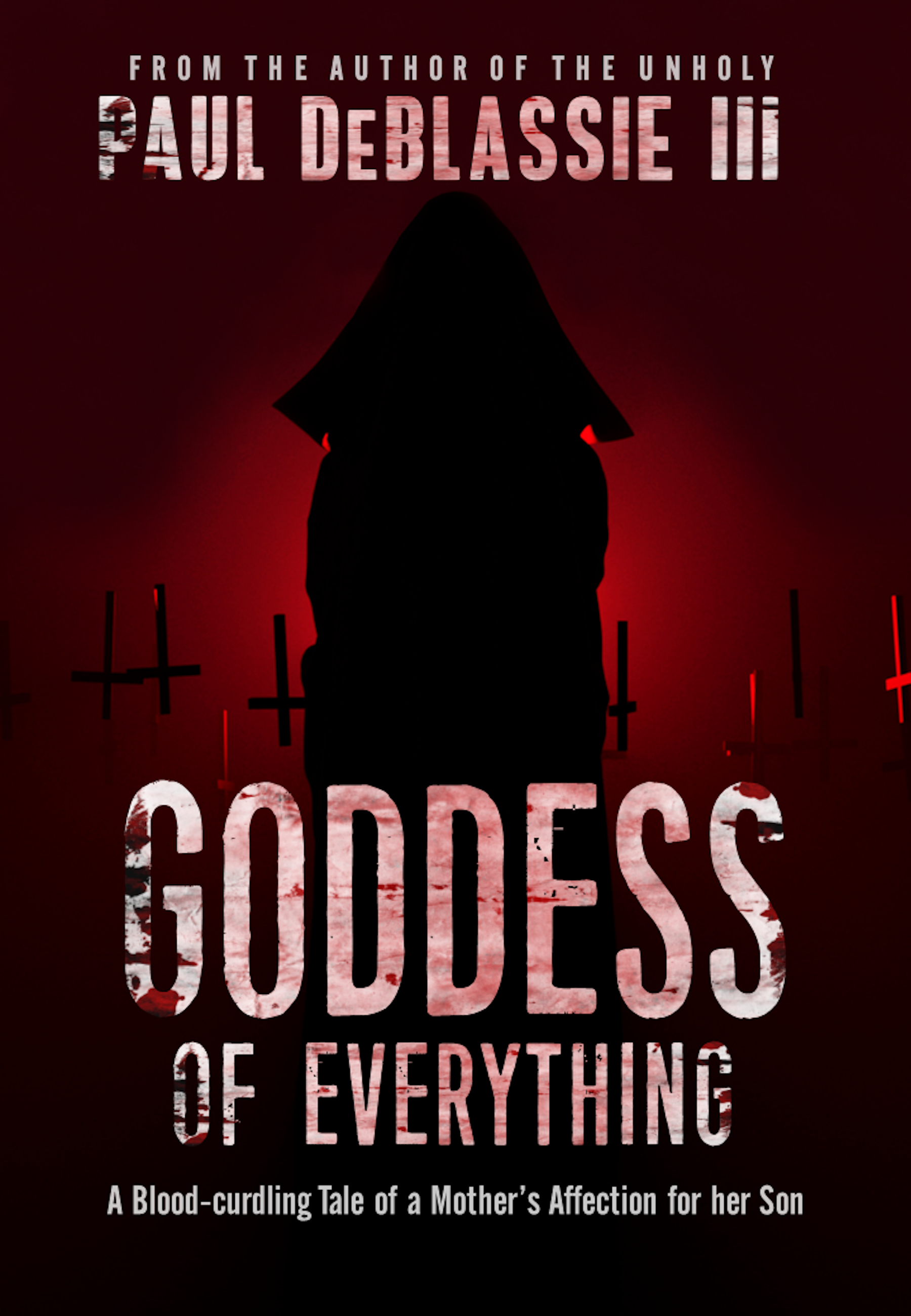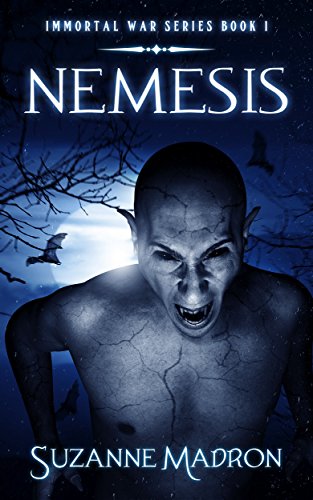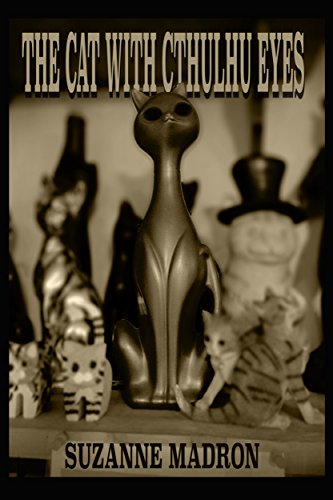What is your name and what are you known for? 
My name is Nick Roberts, and I’m known for my horror novels, Anathema, The Exorcist’s House, Mean Spirited, and my short story collection, It Haunts the Mind and Other Stories. Anathema won the Horror Author’s Guild Award for Debut Novel of the Year, and The Exorcist’s House won the 2023 Books of Horror Indie Author Brawl and was on the Preliminary Ballot for the 2022 Bram Stoker Awards.
Tell us about one of your works and why we should read it. 
Mean Spirited, available everywhere March 15th, is my latest release. After I wrote Anathema and The Exorcist’s House—both of which contain dogs—I realized how much certain readers were affected by fictional dogs. They would say that reading about horrible things happening to humans (even children) doesn’t bother them, but if something happened to a dog, they would be so triggered that they couldn’t handle it. As a father and an animal lover, this intrigued me. Meanwhile, I had no idea what I wanted my third novel to be about. I don’t outline my work. Normally, I just start with a creepy prologue and watch where it goes. My goal with the Mean Spirited prologue was to write a blend of The Strangers and Stolen Tongues. I figured if I could tap into the fear of a home invasion and tie it in with the supernatural creepiness that Felix Blackwell did perfectly in Stolen Tongues, I would be off to a good start. As soon as I started writing about this young lady who gets a mysterious midnight doorbell ring and her dog that started barking, something clicked, and I realized this was my chance to write a book that would take those “stay away from the dog!” readers on a philosophical journey that hopefully has them looking twice at the sweet rescue pup in the corner.
What places or things inspire your writing?
All of my novels thus far have taken place in my home state of West Virginia. I love describing the scenery and juxtaposing it with whatever horrors my mind conjures. Plus, when I write about the rural parts of the state, having isolated characters with no cell phone service comes in quite handy. Family dynamics also inspire my writing. I like to dig into the nuances of the relationships my characters have and make them as complex as possible. I want my readers to actually care about the fate of the characters.
What music do you listen to while creating?
I listen to movie soundtracks when I write. These are horror film scores for the most part. Some of my favorites include It Follows, 28 Days Later, Beetlejuice, The Devil’s Rejects, The Village, and Requiem for a Dream. I had this weird ritual when writing Mean Spirited where I would play the Requiem for a Dream soundtrack from beginning to end, but I had to stop when it was over. This made me write faster to make sure I hit my 1,000-word daily minimum and heightened the pacing of the narrative.
What is your favorite horror aesthetic?
I love a good, isolated chamber piece. If it involves the occult or folk horror, even better. Something about the power of belief in humans and what they’ll do in the name of it gets under my skin. It all ties back to that fear of being an outsider or that everyone is in on the joke but you.
Who is your favorite horror icon?
Leatherface from The Texas Chain Saw Massacre will always be my favorite horror icon. He has the best costume by far, and the chainsaw is my horror movie weapon of choice. I will say this, though, we are currently in the age of a new horror icon emerging, Art the Clown. What Damien Leone is doing with his Terrifier films is inspired, unapologetic lunacy, and I love it.
What was the scariest thing you’ve witnessed?
The scariest thing I ever witnessed was seeing my grandfather on my dad’s side of the family in his hospital bed at the end of his battle with Alzheimer’s disease. I was a little kid, and I remember being prepped in the hospital hall outside his room, being told that we were going in there to say our goodbyes. This setup had me freaked the fuck out before my dad even opened the door. I remember timidly walking in there and seeing his feet poking out from behind a curtain and dreading what he’d possibly look like. As my siblings and I all slowly packed into the small room, I caught a glimpse of his frozen face. That look has never left me. His eyes were fixed and staring through the ceiling at something none of us could see, and his jaw hung agape. I had to turn away because it made my stomach turn to knots. I somewhat revisited this scenario in my short story, “Grandma Ruth.”
If invited to dinner with your favorite (living or dead) horror creator, who would it be and what would you bring?
If I got to share a meal with any horror creator, it would be Alfred Hitchcock. First of all, the man is arguably the best technical filmmaker ever. Throw in the fact that he used his superpowers to shock and horrify, and you end up with classics like Psycho, Rear Window, The Birds, and Vertigo. I would pick his brain for as long as he’d let me, and it would probably take a few courses because dude talks slowwwww. To combat this in the interest of efficiency, I would bring some illicit stimulant with which to spike his brandy.
What’s a horror gem you think most horror addicts don’t know about? (book, movie, musician?)
With the ability to stream basically anything you want, hidden gems are becoming more difficult to find. Everyone seems to have seen or at least have heard about everything. I’ll take it back to my days of roaming the aisles of Blockbuster Video and say that if you haven’t seen the anthology horror film, Campfire Tales, you need to correct that egregious error ASAP. It’s a grown-up version of Are You Afraid of the Dark?, and it has a great cast of then-unknowns.
Have you ever been haunted or seen a ghost?
I don’t believe in anything paranormal, so no. It’s fun to engage in that and suspend disbelief, but so is pretending Santa Claus is real. The closest thing to ghosts that I could believe in would be aliens, and even then, it’s a stretch. I want to believe, but the skeptic in me simply won’t permit it.
What are some books that you feel should be in the library of every horror addict?
Every horror addict should have a vast Stephen King collection, and at least one book from the following authors: Edgar Allan Poe, Clive Barker, Bret Easton Ellis, William Peter Blatty, R.L. Stine, Shirley Jackson, Stephen Graham Jones, Richard Matheson, Catriona Ward, Grady Hendrix, Jack Ketchum, Dan Simmons, and Paul Tremblay.
What are you working on now?
I am currently writing a sequel/prequel hybrid called The Exorcist’s House: Genesis, which will be released by Crystal Lake Publishing in September of this year. I’m also wrapping up my Patreon-exclusive, serialized novella, Dead End Tunnel. It should be finished by April and available to the masses in June. I’m contracted to write the sequel, Anathema: Legacy and plan to start writing that in May with the goal of releasing it in early 2025. I’ll then get to work on my next novel, one that’s sure to be my darkest yet, My Corpse Has a Heartbeat, but that has no expected release date. It does, however, already have a wicked cover by Dusty Ray.
Where can readers find your work? (URL #1 place for them to go.)
Readers can find my work and links to my socials on my website: www.nickrobertsauthor.com.











































 Stephanie Ellis is a busy woman of horror.
Stephanie Ellis is a busy woman of horror. Q1: You released Dark is My Playground in July, a collection of dark verse and twisted nursery rhymes. What draws you to the horror genre?
Q1: You released Dark is My Playground in July, a collection of dark verse and twisted nursery rhymes. What draws you to the horror genre?





















































